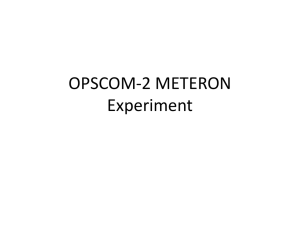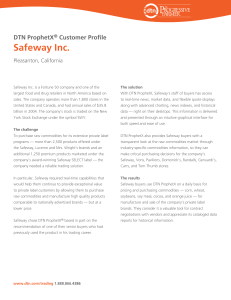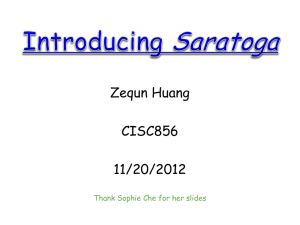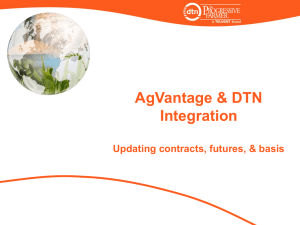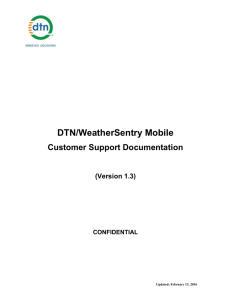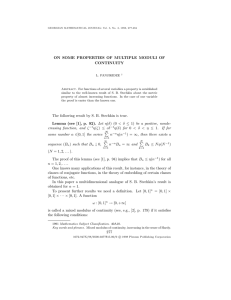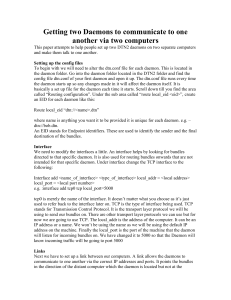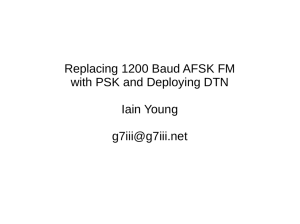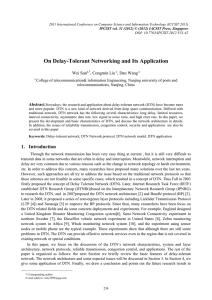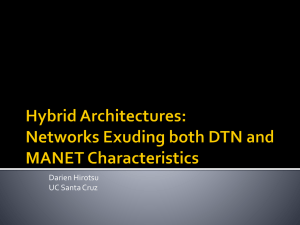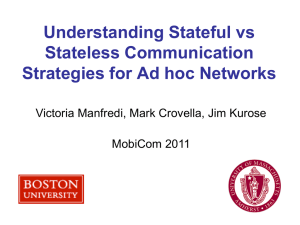(AAE) Disruption Tolerant Networking (DTN) - CWE
advertisement
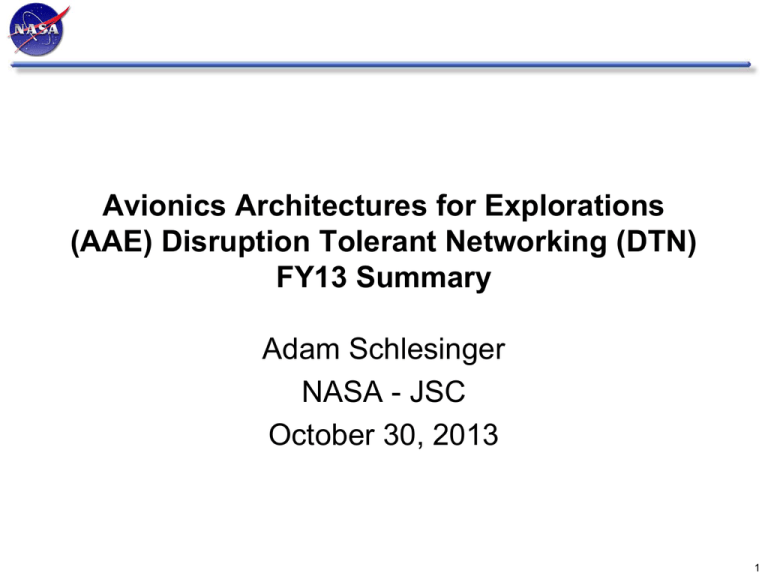
Avionics Architectures for Explorations (AAE) Disruption Tolerant Networking (DTN) FY13 Summary Adam Schlesinger NASA - JSC October 30, 2013 1 Introduction and Purpose - DTN • NASA is developing the Disruption Tolerant Networking (DTN) protocol suite that extends the terrestrial Internet capabilities into highly stressed data communication environments where the conventional Internet protocols do not work well. The DTN project is a separate AES project. • The DTN protocol suite is being standardized by the Consultative Committee for Space Data Systems (CCSDS) and all of the DTN protocols will be international standards, supported by open-source software that can help users implement the new capabilities. • The AAE project is performing trade studies to determine the best location for DTN within the spacecraft architecture, including key considerations such as size, weight and power, processor utilization, storage capacity, device real estate, and required data rates. • The AAE project is also studying the impact of having DTN nodes at other locations within the end-to-end communication architecture, including key considerations such as network reliability, implementation costs, and the need for international interoperability. 2 Accomplishments in FY13 • Development of baseband processor software application including integration of DTN • Development of SDR transceiver system using GNU Radio and the USRP 3 Baseband Processor Software Application • Developed a generic baseband processor software application that can be used with multiple SDR platforms and has many features: – Framing of CCSDS space packets into CADUs – Data randomization and Reed-Solomon error correction – Support for multiple data streams (Telemetry, Commands, Voice, Video, etc.) – Support for CCSDS formatted packets or generic UDP – DTN gateway for native or non-native DTN users with integration of ION 3.1.3 – Web interface that automatically updates with useful statistics – XML-based configuration files for easy setup and deployment – Fill data generation to keep radio link active – CCSDS packet generation for testing/debugging 4 Baseband Processor Software Web Interface 5 Baseband Processor Configuration File 6 Using DTN with other CCSDS Protocols 7 SDR Transceiver System with USRP • Developed a radio transceiver system using the GNU Radio open-source SDR development architecture targeted for the Universal Software Radio Peripheral (USRP). 8 SDR Transceiver System with USRP • Demonstrated multiple modulation schemes: BPSK, QPSK, GMSK – Currently use BPSK on the forward link and QPSK on the return link for the demo • Demonstrated using a wide range of frequencies on a single platform – Currently use S-Band for the demo but can operate anywhere from 400 MHz to 4.4 GHz 9 Plans for FY14 – Funding Dependent • Integrate DTN with CFS in collaboration with both the DTN and CFS AES projects • Conduct trade studies to determine benefits/weaknesses of where DTN resides on a spacecraft (flight computer, radio or external router) • Demonstrate DTN network management and security features in iPAS 10
